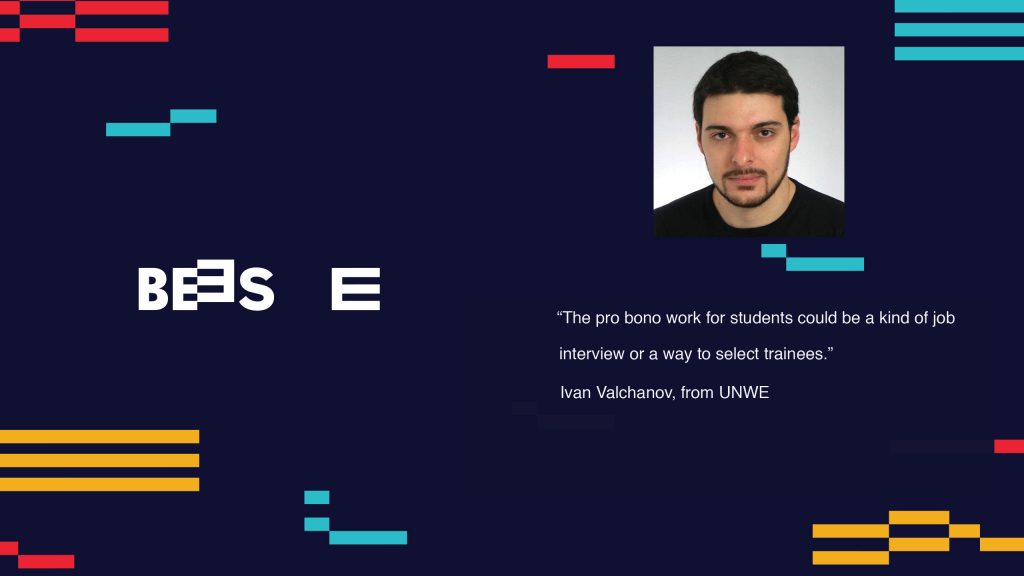Interview with Ivan Valchanov, from UNWE
In this post we share another point of view about pro bono by Ivan Valchanov, chief assistant of Media and Public Communications department of University of National and World Economy (Bulgaria). He teaches Communication Management, Digital Journalism Competencies and Media Project Management.

Denitsa Gorchalova: How do you perceive the idea of pro bono activities to become part of the curriculum at UNWE? What are the pros and cons?
Ivan Valchanov: I find this practice quite useful because the students will get in touch with the real business environment. According to me, the best option is to link students with their potential employers. The pro bono workshops could be a kind of a job interview or a way to select trainees.
One possible problem could arise if the students concentrate too much on the cases and lose sight on all other important elements of the learning experience. The successful collaboration among all sides – students, professors and mentors – would be the most useful.
Denitsa Gorchalova: Would you make pro bono activities a part of the final grade of the students and why?
Ivan Valchanov: Yes, it is quite possible. In my courses most of the assignments my students get are real-life cases that mock everyday cases that field-workers deal with on an everyday basis. I’m very glad that some of the projects of my students continue their development at their workplaces – partially or as a whole.
I imagine organizing pro bono workshops by using the contacts of university teachers with business organizations, followed by a discussion about what cases and problems are suitable to be included in the respective course.
Denitsa Gorchalova: Would you make pro bono activities a part of the final grade of the students and why?
Ivan Valchanov: Yes, I would. I always make the case studies part of the final grade. The pro bono workshop could even form 50 per cent of the final grade.
Denitsa Gorchalova: What are the problematic areas you envision if pro bono would become a part of the teaching?
Ivan Valchanov: There could be a discrepancy between the expectations of the organizations and the quality of the students’ work. When thinking about media, there are huge differences between what is taught regarding the theory and ethics on one hand, and real actions on the other.
